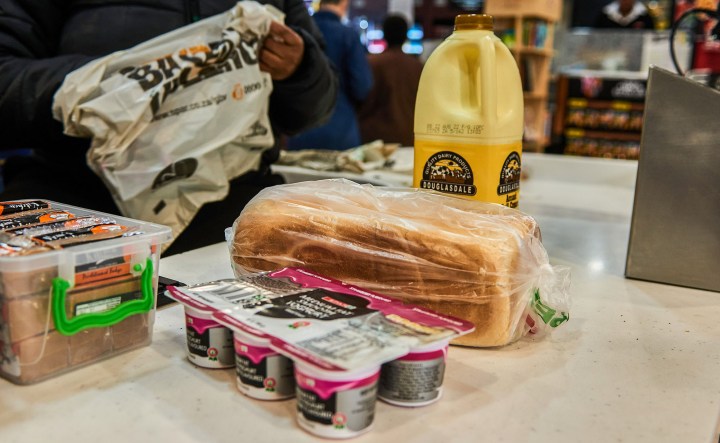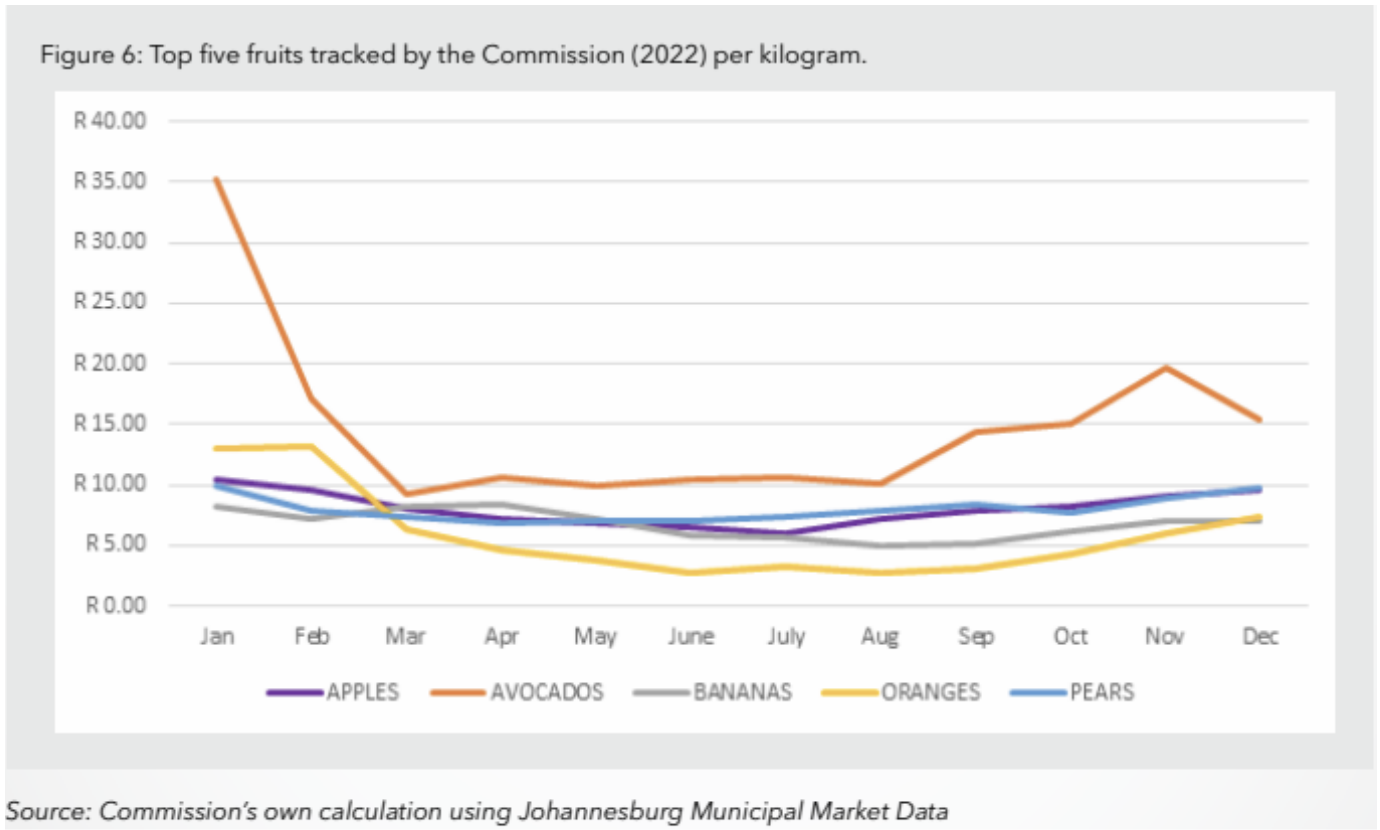COST OF LIVING
Competition Commission slams food producers and retailers over prices

The Competition Commission has been monitoring the price of essential foods since the onset of the Covid pandemic in March 2020. It said while the effects of the pandemic have largely subsided, food prices continue to rise.
The Competition Commission has slammed price hikes on essential foods, labelling them as “opportunistic” and “unjustified”. It now plans to investigate the prices of a range of foods, including bread, cooking oil, maize meal, rice, flour, margarine and pasta – at both retail and wholesale levels – and took a “deep dive” into the poultry chain.
In its eighth and latest Essential Food Pricing Monitoring report, for 2021 to 2022, the commission has trained its sights on the feed-to-poultry value chain.
This follows last month’s publication of its final terms of reference for the Fresh Produce Market Inquiry, related to allegations of price gouging during Covid.
On 22 March, Stats SA said South Africa’s consumer price index accelerated year-on-year to 7% in February, from 6.9% in January, with food and non-alcoholic beverages increasing by 13.6% – the highest reading since April 2009.
Monitoring priority
The commission said in light of elevated levels of food inflation and rolling blackouts, food price monitoring would remain a priority, given its importance to the welfare of South Africans.
The commission said its food sector reports had pointed to worrying features in several food markets and value chains, with larger differences between what farms were paid for food items and in-store prices, growing margins at the processor and retailer level, and potentially opportunistic pricing behaviour for staple foods such as bread and cooking oil.
In the latest food pricing report, the commission noted that, from January to December 2022, retail prices for white and brown bread (20% and 19% respectively) had increased faster than producer prices (15% and 14% respectively), suggesting that shelf price increases might not be justified by costs.
Over the same period, the price of maize meal increased by 32% (going from R26.62 to R35.29) while the South African Futures Exchange price for maize had increased at a slower rate, meaning that the price charged by farmers constituted a lower percentage of the retail price, which the commission said was concerning as it could suggest opportunism throughout the value chain.
It also questioned the use of export parity pricing throughout the maize value chain.

The prices of the five fruits and vegetables – apples, avocados, bananas, oranges and pears – were volatile over 2022, which will be examined by the Fresh Produce Market Inquiry.
The most recent Essential Food Pricing Monitor looked at the feed-to-poultry value chain, specifically individually quick-frozen (IQF) chicken products. Feed costs account for more than two-thirds of broiler production costs.
The feed-to-poultry value chain is highly concentrated, with five firms making up 70% of total chicken production and the top two firms making up half of the market.
Some of its findings relating to the poultry value chain include: The price of grains and oilseeds used to manufacture animal feed – wheat, maize, soya beans and sunflower oil – were volatile and increased over 2021 and 2022.
But over the same period, the price of poultry feed was relatively stable.
Raw material costs are expected to fall over the first half of 2023, which the commission said it will monitor to determine how much they affect chicken prices at the retail level.
Feed prices had increased faster than the price of producing IQF chicken – the most widely consumed chicken products in the country – although the commission said producers reported improvements in their financial performance, largely driven by high feed prices.
Price ‘anomaly’
The report noted that when chicken imports from the European Union were banned due to an avian flu outbreak, domestic producer prices increased.
“This anomaly requires further interrogation, and the Commission will closely monitor the developments in the poultry sector to ensure that consumers are not subjected to unjustified price increases.”
The commission has been monitoring the price of essential foods since the onset of the Covid pandemic in March 2020. It said while the effects of the pandemic have largely subsided, food prices continue to be elevated.
It said the structure of the poultry industry raised concerns about the exploitation of market power and supplier relationships. Based on the financial performance of poultry producers Astral and RCL, the commission said it was evident that they had been able to raise prices to compensate for higher costs.
“However, we cannot tell from publicly available information whether they have done so by charging external customers more for feed than their internal broiler business. Since both firms report the feed business as part of the larger poultry business, the improved business profitability is likely to come from higher feed prices to downstream rivals as well as higher chicken product prices to consumers.”
On 6 March, RCL Foods released its interim results, describing trading conditions as “challenging”.
Rolling blackouts
It said sustained high commodity input prices, above-inflationary
increases in other costs, and unprecedented levels of rolling blackouts had a notable impact on the period under review, which resulted in declines in its Rainbow chickens and baking divisions.
RCL Foods’ value-added business (consisting of the groceries, baking and sugar business units) delivered resilient results in a declining market. The groceries business was significantly “challenged” by the power crisis, which hurt service levels in the first quarter. Industrial action at both the grocery and pies facilities also contributed to higher costs and production downtime.
Volumes came under pressure in the baking division, largely resulting from price increases implemented to counter high wheat and maize prices.
Sugar produced a good result, aided by volume growth and higher prices, but partially offset by high energy and fertiliser costs.
Rainbow’s turnaround was hampered by high feed input costs, poor agricultural performance and blackouts. Higher volumes and pricing, coupled with an improved mix, were insufficient to offset the higher input costs, it said.
Astral has been similarly whipped by the power crisis. Its latest results, released in January, reflected a poultry operation severely disrupted by rolling blackouts, which it said had resulted in abnormal additional costs as well as substantial production cutbacks of at least 12 million broiler chicken placements (sales) for H1. It warned that its H1 earnings for the six months ending on 31 March 2023 were expected to plunge by “at least” 90%.
Consumer strain
Earlier this month, the SA Poultry Association said producers need to look beyond South Africa’s borders to offset economic pressures at home, where domestic consumers are under increasing strain due to power outages that have increased the cost of producing birds. It said the industry has done all it can to mitigate against the consequences, so consumers must expect to pay more for poultry products.
The association has called for the scrapping of VAT on chicken as well as chicken feed, to provide relief for farmers and SA’s most vulnerable consumers.
At the State of the South African Poultry Industry media roundtable, the association said the sector was battered by avian influenza outbreaks; the war in Ukraine, which caused a steep rise in feed and input costs; and the suspension by the Department of Trade, Industry and Competition of the implementation of anti-dumping duties – despite being warned by the International Trade Administration Commission that doing so would cause material harm to the industry. BM/DM


















 Become an Insider
Become an Insider
Strange the governmunt of ours is. They want the taxes from free enterprise. In fact their pension funds are invested in retail stores too. They mismanage the economy so that the rand depreciates which causes energy and fertilizer to become more expensive. They cannot provide electricity to keep the business models of free enterprise working and then when it all backfires on their voters, they blame not themselves, but the people in who they invest!
Slams? More like a pat on the back, if the article is to be believed.
Stupid approach to just focus on the difference between raw material prices and product prices. Raw material prices are but one component of a large mix of costs that go into product costings. just think about the huge increase in logistics costs over the last year, the terrible effect of load shedding on production throughput (between 25 and 40% of capacity lost), the huge increase in electricity rates – for the little that you get, and the demands of workers for higher wages.
Yes, the consumer pays and it’s a sad day when multitudes can no longer afford to pay. But without food processors there will be nothing to eat at all – and they have to recover the increased production cost somewhere. So, the margin has to increase, and the consumer is the last in the line that has to pay. Rather than blaming food processors, blame the state who cannot sort out the electricity crisis, nor grow the economy…
Slams? After three years of monitoring food prices, what have they actually done? The CC is rendered irrelevant by its snail like pace of delivering rulings. Also, please mention the profits of the major supermarkets; it’d be very revealing.
Comp Com do not understand the value chain
If super profits are being made then they might have a point
More political anti business posturing I suspect!!
When ever I see “slam” in the headline I don’t read it.